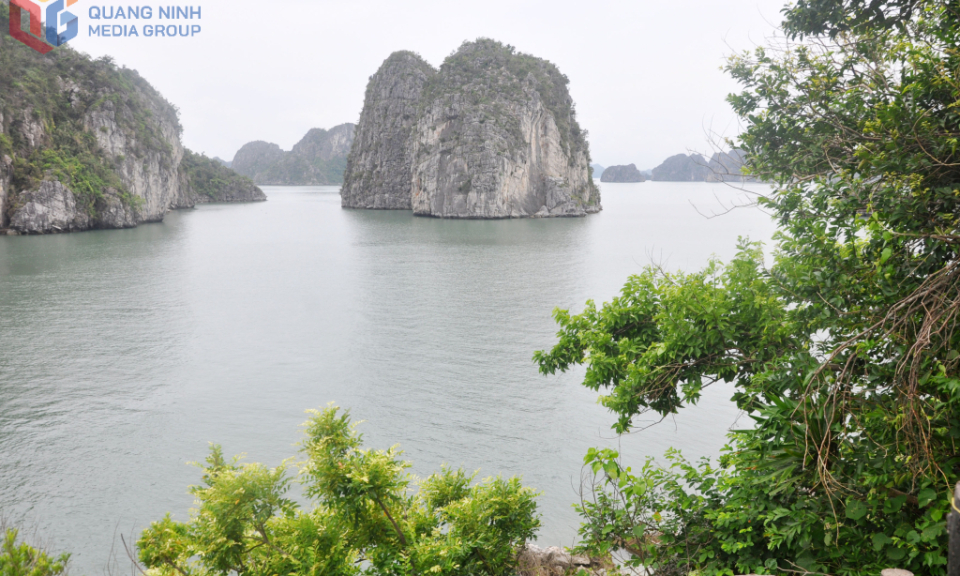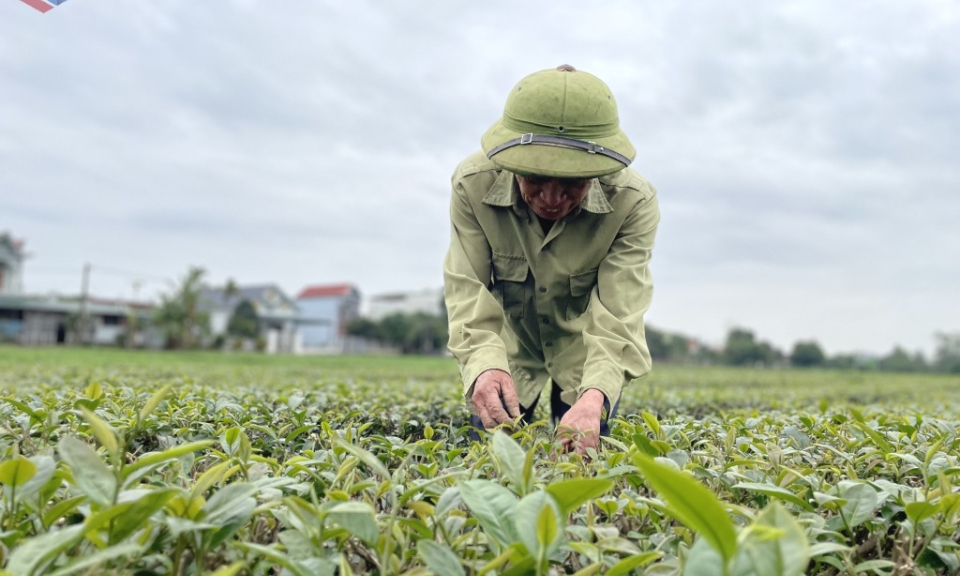Top 10 major economic events in 2021
2021 has been a turbulent year for economies around the world, including Việt Nam, due to the complex development of the COVID-19 pandemic. However, the Government, businesses and people have made outstanding efforts in both fighting the pandemic and stabilising the domestic economy. Vietnam News Agency has selected the top 10 major Vietnamese economic events in 2021 as follows:
1. Some economic sectors record higher-than-expected results amid COVID-19
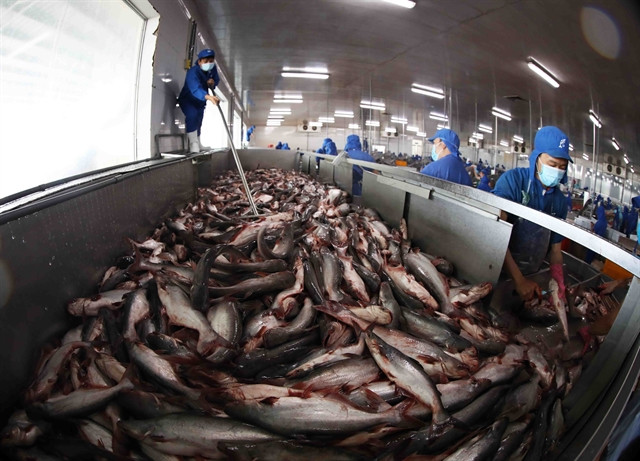
The outbreak of the fourth wave of COVID-19 infections in the middle of the year took a heavy toll on Việt Nam’s economy as many localities had to implement large-scale social distancing measures, halting many business activities. Despite the lockdowns, a number of economic targets have recorded positive growth such as GDP increasing by nearly 3 per cent; the two-way trade value surpassed US$600 billion, up 22.4 per cent year-on-year and bringing Việt Nam to the group of the 20 leading economies in terms of international trade; trade surplus reached about $3 billion; and foreign direct investment flows into Việt Nam topped more than $29 billion, up $500 million over 2020.
2. Resolution issued to permit unprecedented measures in COVID-19 combat
On July 28, at the first session of the 15th National Assembly, the parliament issued Resolution No 30/2021/QH15, which endorsed the Government and Prime Minister to take unprecedented measures to meet urgent requirements in COVID-19 prevention and control.
Under this resolution, the Government promulgated many policies, especially Resolution No 86/NQ-CP on urgent anti-pandemic solutions, which helped ministries, sectors, and localities to proactively take steps against COVID-19, guarantee social security, and assist pandemic-hit people and businesses.
Data from relevant agencies show that as of early December 2021, authorities exempted, reduced, or extended payment deadlines for about VNĐ140 trillion ($6.1 billion) worth of taxes and fees for enterprises; disbursed VNĐ1.754 trillion for helping to pay salaries; and exempted and reduced about VNĐ31 trillion in interest and fees for clients of credit institutions.
3. National Assembly adopts economic restructuring plan
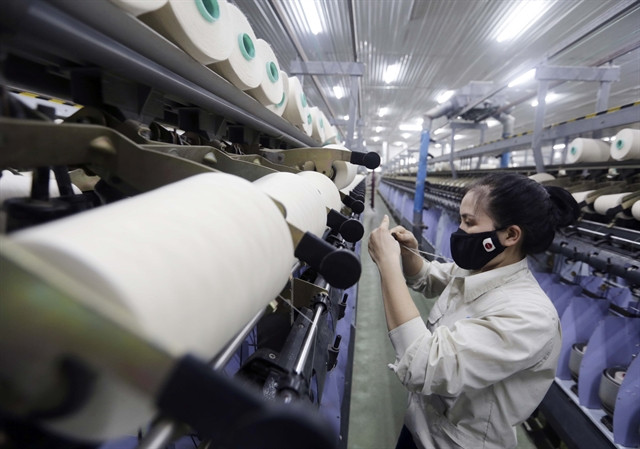
On November 12, at the second session, the 15th National Assembly approved a resolution on the economic restructuring plan for 2021-25. This resolution pointed out the need to form a reasonable and efficient economic structure, develop many national products based on new and high technology, make breakthroughs in the competitiveness of some key economic sectors, and improve the economy’s self-reliance, adaptability, and resilience.
Amid opportunities and advantages intertwined with challenges and difficulties, especially amid the COVID-19 pandemic, the Government stressed that this plan needs to be implemented strongly to accelerate economic recovery and create an impetus for breakthroughs in the future.
4. Việt Nam commits to achieving net zero emissions by 2050

At the World Leaders Summit of the 26th UN Climate Change Conference (COP26), Prime Minister Phạm Minh Chính declared Việt Nam’s commitments to climate change response. Accordingly, the country pledged to reduce net emissions to zero by 2050 and agreed to support the important declarations and initiatives on forest protection, transition to renewable energy, assistance for local communities’ adaptation, and methane reduction. It also committed to gradually omitting coal from electricity production and stopping support for the building of new coal-fired power plants.
The strong commitments by Việt Nam have received praise from the international community and shown its leading role in the fight against global climate change in Southeast Asia and the world at large.
5. Việt Nam marks 15 years of WTO membership, affirms stature in integration
The country marked the 15th year since it became a member of the World Trade Organisation (WTO) on November 7, 2006. According to the WTO, among the 50 countries with the largest trade in goods in the world, Việt Nam has recorded breakthrough growth.
Total trade turnover rose by more than 7-fold to exceed $667 billion in 2021, from only $84.7 billion in 2006. The country has continually seen a growing trade surplus since 2016, with a record of over $19 billion in 2020. This year, trade surplus still reached about $3 billion despite difficulties caused by the COVID-19 pandemic.
Together with the WTO, the 17 free trade agreements that have come into force or are under negotiation have turned Việt Nam into an economy with its openness equivalent to 200 per cent of GDP.
6. First-ever country strategy dialogue between Việt Nam and WEF

On October 29, Prime Minister Phạm Minh Chính co-chaired a country strategy dialogue held both in person and via videoconference between Việt Nam and the World Economic Forum (WEF). The event was attended by nearly 70 leading businesses in the region and the world that have invested or planned to invest in Việt Nam. It was a chance for the Government to share economic restructuring plans so as to promote cooperation with enterprises in resuming production and business activities, especially in industrial, export processing, and special economic zones.
7. Việt Nam sees higher position in global soft power rankings
Việt Nam is the only ASEAN country to record a higher position in the Global Soft Power Index Report 2021 released by Brand Finance, the world's leading brand valuation consultancy. It saw an improvement of 2.5 points in overall score to rank 47th among the 105 countries on the list. According to Brand Finance, Việt Nam seems to have managed all aspects of its perception quite well, especially the integration and alignment of its national brand and the brands from the country.
8. Việt Nam becomes one of top 10 emerging logistics markets
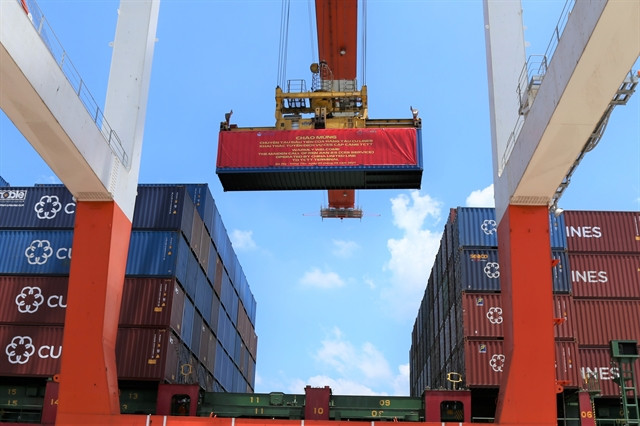
In the 2021 Emerging Markets Logistics Index released by the world’s leading logistics company Agility, Việt Nam jumped three places from 2020 to 8th position in this year’s rankings.
As the world’s logistics industry underwent a year full of challenges and fluctuations, Việt Nam ranking among the top 10 emerging logistics markets has opened up promising opportunities for investment attraction. It is expected to help achieve the Government’s target that by 2025, logistics services will contribute 5 - 6 per cent of GDP and grow by 15 - 20 per cent.
9. New records in the stock market
In 2021, the stock market of Việt Nam set new records. The benchmark VN-Index hit 1,500.8 points, the highest score so far, on November 25, rising by nearly 36 per cent from the end of 2020. Liquidity frequently reached billions of US dollars and set a record of nearly VNĐ53 trillion (almost $2.3 billion) on December 23. In the first 11 months of this year, domestic investors opened more than 1.3 million securities accounts, higher than the combined number of the four previous years.
10. First urban rail route in Việt Nam put into use

On November 6, the Ministry of Transport and the Hà Nội People’s Committee officially put the Cát Linh – Hà Đông urban rail route in the capital city into operation. As the first urban rail route in Hà Nội and the whole country, this mode of public passenger transport is hoped to help reduce traffic congestion in the capital.
The elevated route, 13.05km in total length, consists of 12 stations, starting at Cát Linh Station and ending at Yên Nghĩa Station, and 13 trains. It was funded by China’s official development assistance with total investment of VNĐ18 trillion, rising by 57 per cent from the initial estimate. The construction took 10 years and missed deadlines multiple times.


